 Petzlover
Petzlover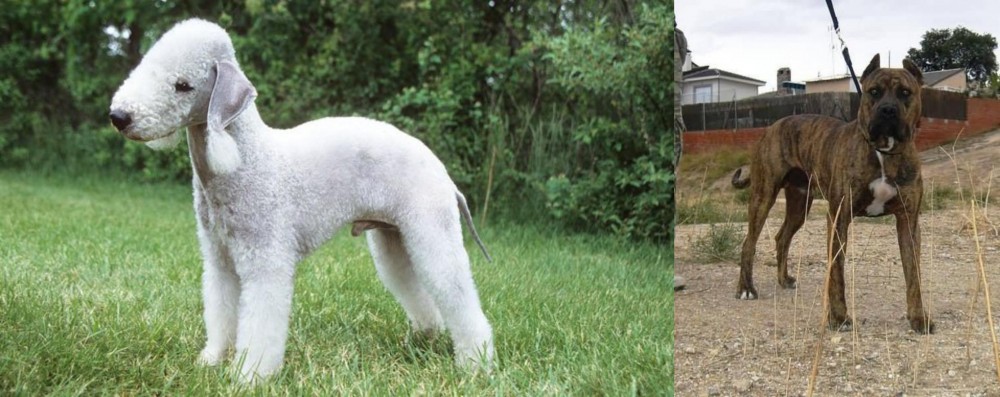 Bedlington Terrier is originated from United Kingdom but Perro de Toro is originated from Spain. Bedlington Terrier may grow 20 cm / 7 inches shorter than Perro de Toro. Bedlington Terrier may weigh 29 kg / 63 pounds lesser than Perro de Toro. Both Bedlington Terrier and Perro de Toro has same life span. Both Bedlington Terrier and Perro de Toro has almost same litter size. Both Bedlington Terrier and Perro de Toro requires Low Maintenance.
Bedlington Terrier is originated from United Kingdom but Perro de Toro is originated from Spain. Bedlington Terrier may grow 20 cm / 7 inches shorter than Perro de Toro. Bedlington Terrier may weigh 29 kg / 63 pounds lesser than Perro de Toro. Both Bedlington Terrier and Perro de Toro has same life span. Both Bedlington Terrier and Perro de Toro has almost same litter size. Both Bedlington Terrier and Perro de Toro requires Low Maintenance.
 Originally known as Rodbury Terriers or Rothbury’s Lambs, and renowned for looking like a lamb, the Bedlington Terrier was bred in the village of Bedlington in Northumberland. They’ve had other names too and were also known as ‘gypsy dogs’ and this is because gypsies used them to hunt.
Originally known as Rodbury Terriers or Rothbury’s Lambs, and renowned for looking like a lamb, the Bedlington Terrier was bred in the village of Bedlington in Northumberland. They’ve had other names too and were also known as ‘gypsy dogs’ and this is because gypsies used them to hunt.
The Bedlington Terrier Club was established in 1875 and the National Bedlington Terrier Club was formed in England in 1877. The breed has links with the Dandie Dinmont Terrier, the Kerry Blue Terrier and the Soft Coated Wheaten Terrier. When you look at the slightly arched back, it could also be related to the Whippet. They have been crossed with Whippets to get that speed, and feisty character.
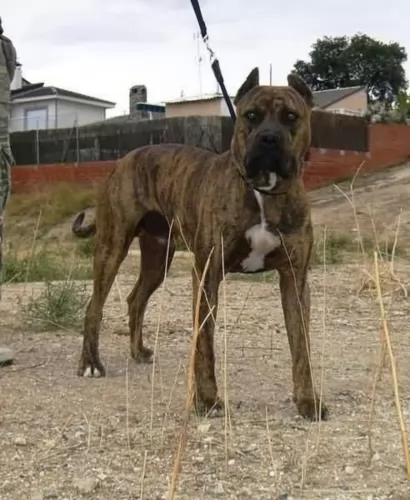 The rare Spanish Perro de Toro seems to have unclear origins, with some saying the dog is a direct descendant of the Toulouse Mastiff, while others say that the dog was developed by crossing the Alano with the Dogue de Bordeaux.
The rare Spanish Perro de Toro seems to have unclear origins, with some saying the dog is a direct descendant of the Toulouse Mastiff, while others say that the dog was developed by crossing the Alano with the Dogue de Bordeaux.
The dog hails from Spain and was once used as a fighting kind of dog but today it is essentially a family pet. The dog is an ancient breed, an ancestor of many of the molosser breeds that are around today.
 Don’t let their lamb-like appearance fool you – the Bedlington Terrier is a plucky dog who has some amazing speeds when it comes to swimming and running. This is an intelligent dog too and every bit a Terrier in spirit. Their tenacity has seen them being used in dog fighting as well.
Don’t let their lamb-like appearance fool you – the Bedlington Terrier is a plucky dog who has some amazing speeds when it comes to swimming and running. This is an intelligent dog too and every bit a Terrier in spirit. Their tenacity has seen them being used in dog fighting as well.
The Bedlington Terrier stands at about 41cm in height and weighs between 8 – 10kg. Muscular, with a deep chest, graceful and lithe, not only does he look like a lamb but the dog’s expression is gentle too with bright deep-set eyes. When it comes to his coat, the dogs have blue, sandy or liver color coats and the coat has tan markings in some areas.
The coat is shaggy and is made up of hard- and soft hair that will need to be regularly trimmed. Known as a hypoallergenic breed, the coat is also described as thick and linty. The ears are floppy with rounded tips, and are thin and velvety in texture with a small silky tassel at the tip. The longish tail is set low and tapers down to a point.
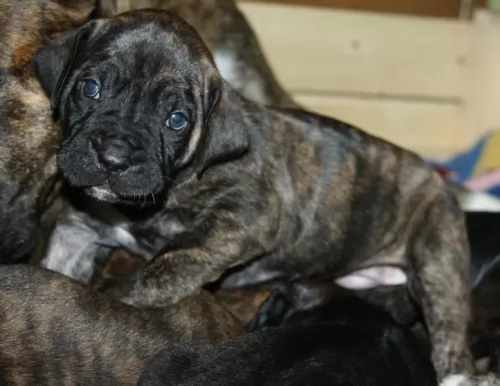 This is a strong, powerful, large breed of dog, making a good watchdog and guardian. He can be anything from 56 to 64cm in height and weigh between 34 and 40kg.
This is a strong, powerful, large breed of dog, making a good watchdog and guardian. He can be anything from 56 to 64cm in height and weigh between 34 and 40kg.
The nose of the dog is broad and black, the ears are set high and droop over slightly,making them floppy ears, but they have always been cropped to stand up erect.
He's a sturdy dog and the tail is fairly thick at the base, tapering to a point. These days it tends to be undocked and left long. The neck is strong and powerful too and the head brachycephalic. The short coat includes colors such as yellow, grey, fawn and red with the black mask.
The Spanish Bulldog looks fairly intimidating and he will certainly need training and socialization if he is to be obedient and well behaved.
He isn’t aggressive but is confident, dominant, fearless, loyal and also loving towards his owner. He is devoted towards his human family and is good with children. Like any mastiff type breed, he will need a firm, kind, consistent, patient owner. This is the kind of owner who will understand this breed type and take time out with him to exercise him and provide him with mental and physical stimulation so as to prevent boredom.
 You can’t miss the Bedlington Terrier – he has a striking resemblance to a lamb. The curly coat is interesting too – a mix of hard- and soft hair. He is friendly, loyal and devoted to his human family and is known to be a brave, courageous, feisty dog with the inclination to bark more. Socialization and training can change this though. He gets on well with children and other pets in the home. He isn’t aggressive but if taunted, he can put up a good fight.
You can’t miss the Bedlington Terrier – he has a striking resemblance to a lamb. The curly coat is interesting too – a mix of hard- and soft hair. He is friendly, loyal and devoted to his human family and is known to be a brave, courageous, feisty dog with the inclination to bark more. Socialization and training can change this though. He gets on well with children and other pets in the home. He isn’t aggressive but if taunted, he can put up a good fight.
This is a dog that can adapt to his surroundings so he slots in well to both city- and country living. Wherever he lives, he will need adequate exercise.
The present-day Bedlington Terrier, inducted by the American Kennel Club in 1967, is not a lamb by any means, and by choosing to have him as your pet, you’ll be amazed at his wonderful qualities that make him such in ideal companion.
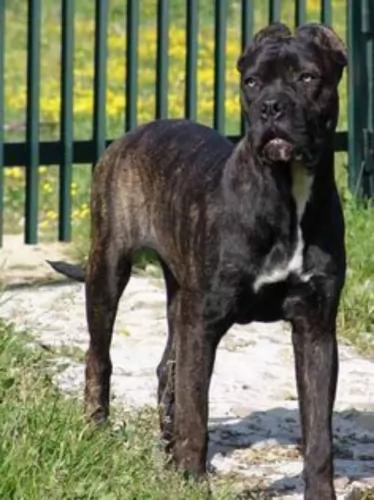 Contrary to what many people think, the temperament of the Perro de Toro is calm and well balanced. This is a reliable, loving, loyal dog who wants to protect his human family.
Contrary to what many people think, the temperament of the Perro de Toro is calm and well balanced. This is a reliable, loving, loyal dog who wants to protect his human family.
He gets on well with children and with pets in the home and when trained and socialized, this intelligent dog is well mannered, obedient and sometimes even submissive.
True, the Perro de Toro has a history of being involved in all kinds of things, from hunting to fighting and also being a working dog, but he is now waiting to show you what a splendid pet he can be if he is raised by the right kind of people.
 Bedlington Terriers are a healthy breed, but just like other dogs, they are prone to some common dog illnesses. You can always ensure that your Bedlington reaches his 12 – 14 years of age lifespan by ensuring his vaccines are kept up to date, that he is fed excellent food and fresh water, he is exercised and that he is loved and cherished. Also, if you’re looking to buy a Bedlington, find a reputable breeder.
Bedlington Terriers are a healthy breed, but just like other dogs, they are prone to some common dog illnesses. You can always ensure that your Bedlington reaches his 12 – 14 years of age lifespan by ensuring his vaccines are kept up to date, that he is fed excellent food and fresh water, he is exercised and that he is loved and cherished. Also, if you’re looking to buy a Bedlington, find a reputable breeder.
Some common health issues to look out for in your Bedlington Terrier include -
Hip dysplasia
Different eye diseases
Hypothyroidism
Copper storage hepatopathy or Liver Disease – this is a disease which can be inherited and where large amounts of copper accumulate in the tissues of the liver. The result is inflammation and cell damage and this can lead to liver failure and even death. Abdominal swelling, jaundice and weight loss are symptoms to watch for with this disease.
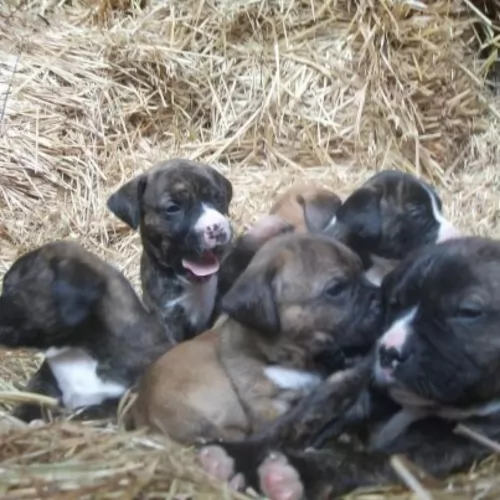 This is a dog breed that is fit and healthy, but to keep him that way you want to make sure he has enough exercise, love and nutritious food.
This is a dog breed that is fit and healthy, but to keep him that way you want to make sure he has enough exercise, love and nutritious food.
He is not known to suffer from any particular disease, but even so, it is wise to be aware of some of the common dog illnesses that your dog could pick up so you can get veterinary help for him just as soon as possible.
With cancer, cells grow rapidly and invade tissue. Dogs can get any of the many cancers there are. Both hereditary and environmental factors can contribute to the development of cancer in canines. Cancer can show up as lumps, swelling, sores that won’t heal, weight loss and difficulty with breathing.
Heartworms are transmitted from one animal to the next by mosquitoes. These worms live in the heart and pulmonary arteries of an infected animal, travelling through the bloodstream and causing havoc. Heartworm is dangerous and can actually be life threatening. Symptoms include coughing, vomiting, battling to breathe and weight loss.
This is a viral disease that can strike terror in anybody who has seen an animal with rabies. It affects the brain and spinal cord of your dog. It is preventable through means of a vaccine. Once symptoms appear, it is a disease which is nearly always fatal.
 The Bedlington Terrier is a lively, cheerful companion at home and is somewhat more relaxed than other terrier breeds. Affectionate and loyal, he just loves to spend time with his human family. He’ll love to be your companion on a walk and he gets delighted when you’re ready to play ball games with him. He makes a great friend for children too, and even though he makes a good watchdog, he will welcome any visitors you have. When trained and socialized he becomes an obedient, well behaved member of the family.
The Bedlington Terrier is a lively, cheerful companion at home and is somewhat more relaxed than other terrier breeds. Affectionate and loyal, he just loves to spend time with his human family. He’ll love to be your companion on a walk and he gets delighted when you’re ready to play ball games with him. He makes a great friend for children too, and even though he makes a good watchdog, he will welcome any visitors you have. When trained and socialized he becomes an obedient, well behaved member of the family.
The Bedlington coat sheds a little but the rough coat will need to be trimmed regularly and the coat brushed twice a week to ensure no tangling and to remove loose hairs. Also, regular cleaning of teeth and ears can help ensure that harmful bacteria doesn’t build up, ensuring the overall health of your dog.
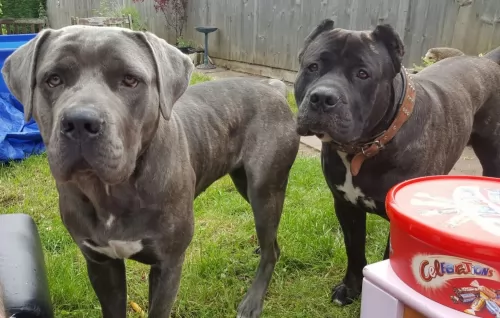 If they are not being used as working dogs, they are family pets, and you need to give them a lot of daily exercise. You will need to give him some walks or hikes and allow him a good run in the country.
If they are not being used as working dogs, they are family pets, and you need to give them a lot of daily exercise. You will need to give him some walks or hikes and allow him a good run in the country.
The Perro de Toro is a short haired dog, and as a moderate shedder, he isn’t going to require too much grooming. A brushing twice a week will help get rid of his hair.
When brushing him, turn it into a bit of a grooming session and check inside his ears, look at his eyes and try to look inside his mouth. He can’t tell you if he has terrible toothache from a rotting tooth and he will rely on you to check his teeth.
Mastiff type dogs need a wholesome diet to remain strong and active. If you are going to feed your pet one of the commercially manufactured dog foods, make sure it is one of the top quality ones.
Avoid the ones that use lots of colorants, preservatives and unhealthy fillers as these can make your dog sick. Try and give him some home-made food which can be added into his dry kibble occasionally.
Boiled chicken, brown rice or pasta and some vegetables such as carrots, sweet potato and spinach chopped up will be excellent for him and will ensure he doesn’t battle with digestive upsets. If you can, every now and then try to include some raw meat for the benefit and health of your pet. Never leave him without a bowl of fresh, cool water.